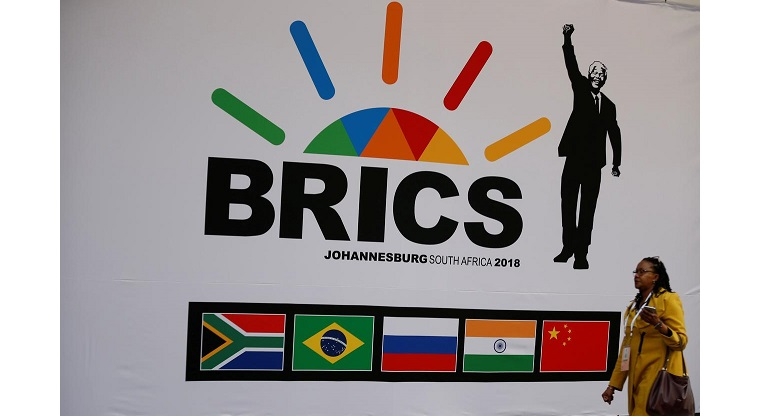


This group is committed to making an effort towards an open environment, in order to create an equal "playground” in the context that trade protectionism remains an existing threat.
One of the important matters mentioned at the BRICS Foreign Ministers’ Meeting this time was to safeguard the international order based on international law and the international system with the UN at its core, uphold multilateralism and trade liberalisation, object unilateralism and trade protection, promote the improvement of global governance and build a community with a shared future for humanity.
BRICS ministers said that hot issues in the region should be resolved through dialogue and consultation while emphasising that BRICS cooperation should bring benefits to its peoples.
As a group of economies with great potential and a high growth rate, accounting for about 25% of global GDP, BRICS is conducting strong reforms, becoming a forum with a growing voice beside those institutions such as the group of the world's largest advanced economies (G7) or the world's major developed and emerging economies (G20). BRICS countries affirmed the need to strengthen policy coordination within multilateral frameworks such as the United Nations (UN), the G20 and the World Trade Organisation (WTO), and to advance "BRICS Plus” cooperation by working with other emerging-market countries and developing countries.
According to BRICS, the world economy is currently in a worrying situation, when global trade is suffering from effects of protectionism while the global economic development is under the influence of unilateral decision. The pursuit of protective measures is fuelling trade disputes and economic blockade, becoming a major risk to further increase global economic instability.
Before the risks that BRICS member countries consider that may "destroy” the global trade order, as well as "shadowing” peace and stability, the countries affirmed their efforts to improve endurance and coping capacity. Promoting inclusive and balanced growth, improving global economic governance as well as maintaining world order based on balance and mutual respect, maintaining open international trade and strengthening WTO, are among BRICS's important points of view with an aim to protect the interests of its members in the context of numerous current commercial disputes.
Trade tensions are thought to be the main threat to the global economic outlook. The world has entered its second year of struggling to cope with the impact of the US-China trade war. According to the International Monetary Fund (IMF), the current and threatened US-China tariffs could cut 2020 global gross domestic product by 0.5%, or about US$455 billion. The world has long been looking forward to positive changes that can "ease” the escalating tensions between the world’s two leading economies.
Meanwhile, according to the WTO, the trend of strong increase in both scale and the number of trade restrictive measures in the past year has interrupted the long-term stability trend, causing consequences such as increasing instability, slow investment activities and weak trade growth. Some trade restrictive measures have increased the challenges and uncertainties of the global economic environment. Therefore, free and fair trade should be promoted.
Tension between many countries involving trade disputes and trade protectionism is negatively affecting the "health” of the world economy. The IMF stressed that surplus and deficit countries should work toward reviving international trade and strengthening the rules of the multilateral trading system that have served the global economy well over the past 75 years. Not only the BRICS countries that have reaffirmed many times about the key role of the multilateral trading system, increasing cooperation and promoting trade liberalisation has a very important meaning for the world economy with an increasingly multipolar character and extensive integration.
Source: NDO